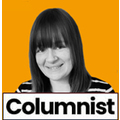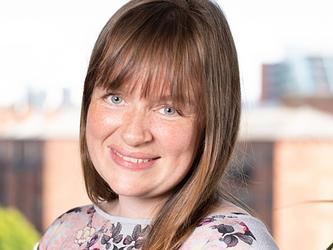Bethan Blakeley: Embrace the team sport
I love team sports. I love watching them (apart from cricket, because who has time for that?), and I love playing them. I love the mentality – coming together to achieve something, with each individual playing their own important role.
It wasn’t until recently, however, that I was introduced to the idea of thinking about your work as a team sport. I’m not talking about the standard drivel of “we’re a team, we’re a family, we work together, blah blah blah” that all companies seem to peddle nowadays (we’ll park that rant for another day). I’m talking about specialist skills. Expertise. I was having my usual imposter syndrome-fuelled panic of “I’m not good enough at X, Y, Z; I need more training in A, B, C; I’ll never truly succeed until I master this, that and the other”. And it hit me. What if I didn’t need to master all of those things to be successful?
Standing on the hockey pitch, I would never expect myself to be goal hanging like a forward, tracking the ball in midfield, defending the 22 and padded up in goal as the last line of defence. I never expect myself to be any good at playing all of those positions (anyone who has seen me play in goal can absolutely vouch for that). The thing is, nobody else would ever expect me to play all of those positions either, or to be remotely good at them.
I know they all exist, I know what they do, I know what their specific roles are and how they come together to form a team. I know how to play my position even better because of what they do, and I know the team objective and how we’re going to get there. What if it’s the same at work?
Maybe I don’t have to be an expert at qual, quant and advanced analytics. Maybe I don’t need specialist experience across all different sectors. Perhaps I don’t need to understand the intricacies of data governance, data engineering and data modelling to know that I understand data.
That’s why all of these different roles exist, right? It’s why a data engineer is different from a data scientist. It’s why a semiotician is different from a social listening expert. When you look at the world of data and research, it is huge, overwhelming, and I always find myself getting stuck with the classic problem of “the more I know, the more I know I don’t know”.
Within our industries, in particular, you’ll also often find the perfectionists, the keen learners, the knowledge-thirsty, the curious. The people whose job it is to answer questions often tend to ask the most questions.
It’s important to remember, however, that it’s how these roles work together that makes the difference – and (the bit I struggle with) the acceptance that these different roles exist for a reason. This becomes even more obvious in client-side data teams. When I was a part of one, there were so many people who worked tirelessly behind the scenes – each of them like a perfectly functioning part of a single entity.
The data architects designed the perfect data warehouses, the data engineers built those visions. The data scientists or analysts were the ones dipping into those databases to run analysis and answer business questions. Then you’ll often have certain individuals across the data teams who have a specific useful skillset – your data visualisation experts, consumer insight experts, stakeholder engagement experts, strategic thinking experts. You could never expect one person to be an expert in all of these different areas. You don’t have to know it all. It’s normal, and productive, to lean on your other team members, to draw on their strengths as they draw on yours.
James Miller, director at Pragma Consulting, put it perfectly in a recent LinkedIn post: “As you progress in your career, especially into leadership roles, it’s crucial to remember that it’s OK not to know it all. You have your strengths, and others have theirs. The key is to remain open to learning and to recognise that expertise is a collective effort.
“Don’t burden yourself with the expectation of perfect knowledge. Instead, embrace the power of collaboration.”

We hope you enjoyed this article.
Research Live is published by MRS.
The Market Research Society (MRS) exists to promote and protect the research sector, showcasing how research delivers impact for businesses and government.
Members of MRS enjoy many benefits including tailoured policy guidance, discounts on training and conferences, and access to member-only content.
For example, there's an archive of winning case studies from over a decade of MRS Awards.
Find out more about the benefits of joining MRS here.













0 Comments